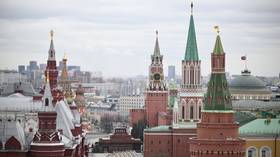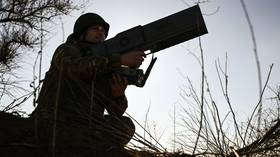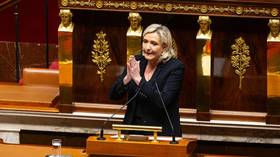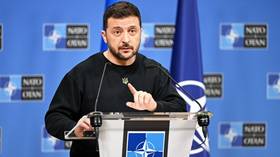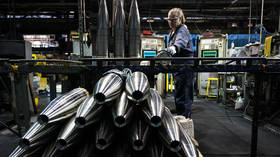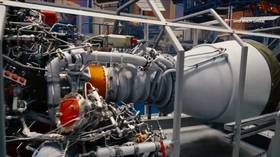Iran to rethink strategy in wake of ‘suspicious nuclear projects’ in the region – top official
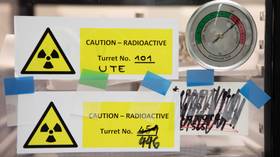
Iran will adjust to threats from countries that ready their own nuclear programs, the nation’s security official has warned. His words come as the US holds talks on selling nuclear tech to the Saudis.
Tehran is paying attention to nations in the region “spending their petro-dollars on suspicious nuclear projects that can endanger the security in the world,” the secretary of the Supreme National Security Council, Ali Shamkhani said on Wednesday.
“New threats like this will force us to revise our strategy” and “predict the requirements of our country and armed forces,” he stressed.
Shamkhani didn’t mention any country by name but his remarks came amid reports that Washington is holding talks to sell civil nuclear technology to its important longtime ally against Iran – Saudi Arabia.
“Our intent is for them to be our partner as they build their nuclear energy,” US Secretary of Energy Rick Perry told the Financial Times earlier this week, noting that the sides have made some progress but the negotiations are still ongoing. The US seeks to ensure that the deal wouldn’t lead to proliferation of nuclear weapons, Perry said.
Washington’s desire to strike a deal with Riyadh, meanwhile, led to some backlash at home. In February, the Democratic Party-controlled House Committee on Oversight and Reform launched a probe into the negotiations. The Democrats fear that President Donald Trump may bypass Congress while providing “highly sensitive” nuclear technology to the Saudis.
The latest development would most likely exacerbate tensions between the two old regional rivals – Tehran and Riyadh – Irina Fedorova, a senior fellow at the Middle East Studies Center of the Russian Academy of Sciences’ Oriental Studies Institute, told RT. Amid the ongoing pressure campaign against Iran, Washington might seek to further stoke controversy between the two adversaries in an attempt to harm Tehran.
However, Washington is by no means interested in providing Riyadh with a nuclear arsenal of its own as it would be another blow to the non-proliferation regime, which no nation would reasonably like to dismantle, the analyst believes. Instead, the US might take part in helping Saudi Arabia develop its peaceful nuclear energy program.
Also on rt.com Iran in economic, psychological war with US & its allies – President RouhaniFor now, both Tehran and Riyadh would most likely confine themselves to some strong statements, which would not be followed by any immediate actions, Federova said, adding that Iran is still likely to stay in the nuclear deal as long as it yields some economic benefits to Tehran in the form of cooperation with Europe and other nations sticking to the agreement.
Meanwhile, Seyed Mohammad Marandi, a professor of North American Studies and the dean of the Faculty of World Studies at the University of Tehran, was less optimistic in his assessment as he warned that Iran might reconsider its commitments to the deal if it sees a direct threat to its national security posed particularly by the Saudi nuclear program.
“If Iran’s national security is threatened either through sanctions or secret nuclear program in a neighboring country, it might prompt Tehran to reconsider the deal altogether…and leave it,” Marandi told RT.
The US and Iran have been exchanging belligerent statements since Trump unilaterally abandoned the Joint Comprehensive Plan of Action (JCPOA) on Iran’s nuclear program last year. Tehran blasted the move but chose to keep the plan in effect. The International Atomic Energy Agency (IAEA) had repeatedly confirmed Iran’s compliance with the agreement.
At the same time, Iranian officials hinted that they stand ready to modify the nation’s nuclear program, if the EU joins Washington in scrapping the JCPOA.
Washington re-imposed sanctions on Tehran and stepped up pressure on its allies to follow suit. Iran has promised to find ways to retaliate if the US endangers its economy or security.
Think your friends would be interested? Share this story!





